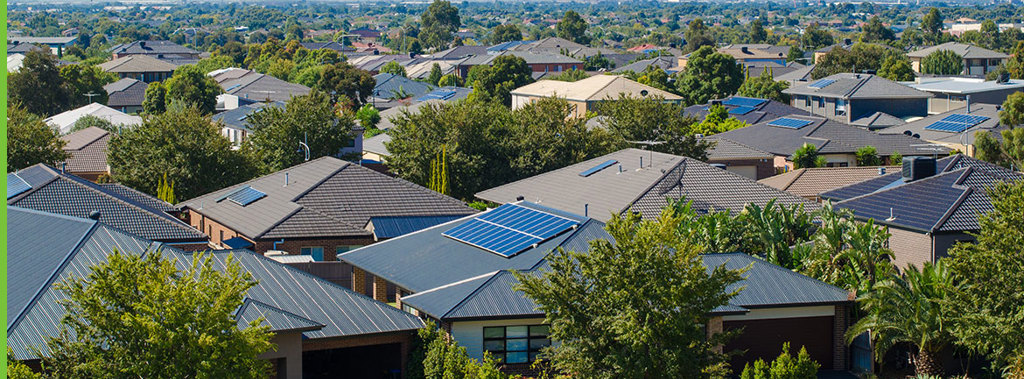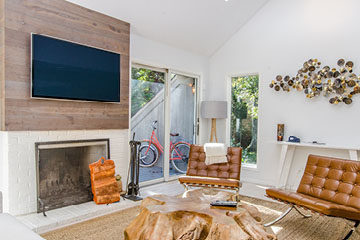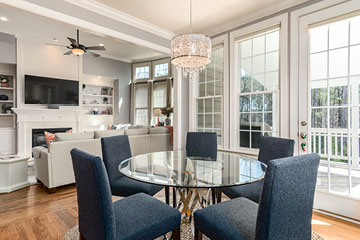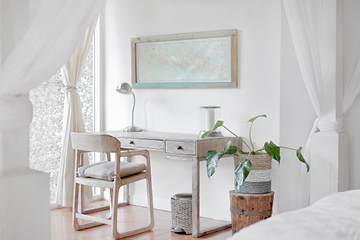
Investment property tax deductions - what you do not want to miss out on
A landlord has a variety of ways to minimise their annual tax bill, and these deductions are often the difference between a negative cash flow and a positive one.
Investment property tax deductions - what you do not want to miss out on
When you are looking for financial freedom, an investment property is a tempting proposition, especially when it comes with tax benefits.
A landlord has a variety of ways to minimise their annual tax bill, and these deductions are often the difference between a negative cash flow and a positive one.
It’s important to note, that investors can only claim deductions on their property during periods in which it was tenanted or genuinely available for rent. And they can only claim the portion of an expense that was used for business purposes, and must keep records to prove these expenses.
With that in mind, here are the top tax deductions for investment properties.

Picture: Alberto Castillo Q
Property investment is hard work, but a plethora of tax breaks makes it a little easier.
1. Rental advertising costs
Landlords need to find tenants or re-let properties and do so through a range of advertising.
If you market your property using online, print media, brochures and signs, you can claim these advertising expenses against your income in the same year that you paid for them.
2. Loan interest
Investors can claim the interest charged on a loan for an investment property and any bank fees for servicing that loan.
For example, if you incur $20,000 interest on your loan and $200 in loan fees, you can claim these on your personal tax return. You can’t, however, claim your repayments on the principal sum, and you can’t claim interest on the entire size of the loan if you refinanced a portion of the loan for private purposes, regardless of whether equity in an investment property was used as security in that loan.
3. Council rates
Rates can be deducted in the year that they are paid, although you can only claim them during periods in which the house was rented.
For example, if your investment property was only rented for 180 days of the year, then you can only claim your rates for that period. This means you would claim 49.3% (180/365) of the total amount you paid in council rates for your investment property that year.

Picture: Chastity Cortijo
Property investors can claim interest repayments, but they can’t claim repayments on the loan’s principal.
4. Land tax
As long as you have a rented dwelling on your investment property, you can use land tax as a deduction.
However, the levy differs significantly between states; as does the timing of when you can claim the cost. Consult a tax advisor or the appropriate state government department to ensure you are claiming the correct amount in the right year.
5. Strata fees
If your property is on a strata title, you can claim the cost of body corporate fees.
But if the fee includes maintenance and garden expenses, you cannot claim these expenses separately.
6. Building depreciation
Depending on when your investment property was built, you may be able to claim a deduction on the depreciation of the building’s structure and any renovations you make to the property.
If the property was built before 16 September 1987, you won’t be able to claim depreciation on the original construction costs however, if it was built after that date, you can claim a depreciation deduction on these costs of 2.5% a year for 40 years. This would mean that, if the building was built for $100,000 in 1990, you could claim a depreciation deduction of $2,500 a year until 2030.
Similarly, you can’t claim depreciation deductions on renovations that took place before 27 February 1992, but you can claim depreciation deductions on structural improvements that took place after this date, at a rate of 2.5% for 40 years.
As always, though, you can only claim deductions for the period in which the property was rented or available for rent.
7. Appliance depreciation
When offering a rental, landlords often install dishwashers, washing machines, air conditioners, stoves and other assets.
Just like the building itself, these appliances decline in value and landlords can claim this depreciation over several years, usually in line with each asset’s “effective life”.
However, landlords can only claim depreciation on assets when they meet certain criteria.
You can only claim deductions on both brand-new and second-hand depreciating assets in residential rental properties if you bought the property before 7:30pm on 9 May 2017 and installed the asset before 1 July 2017. Otherwise, you can only claim depreciation on an asset’s purchase price if the asset was brand-new, or if no one had previously claimed depreciation on the asset because the property was either newly constructed or recently significantly renovated.
8. Repairs and maintenance
You can claim repairs as an immediate deduction if they relate directly to wear and tear. Which is to say, if you replace a few broken roof tiles after a storm or repair an appliance, you can claim the costs of hiring a professional to make these repairs as an immediate deduction. But if you replace an appliance, you will need to claim this cost as a depreciation deduction, over the course of the asset’s lifespan.
Similarly, if you replace an old fence or install new carpets purely in a bid to increase the value of the property, then you will need to claim these costs as a capital works deduction, at 2.5% a year for 40 years.
9. Pest control
Depending on who paid for the service, either the tenant or landlord can claim an immediate deduction for the cost of hiring a professional pest controller.

Picture: Douglas Sheppard
Investors must claim significant renovations as capital works deductions over 40 years, not as an immediate, one-off deduction.
10. Garden and maintenance
Property owners can claim the upkeep and replacement of plants and structures as an immediate deduction, but they cannot immediately claim the cost of any new plants or changes that add extra value to the property, as these are deemed as “improvements” and must be depreciated accordingly.
11. Insurance
You can claim the cost of insuring a rental property. Refer to your quarterly statements for the amount, or request an annual breakdown from your provider.
12. Bookkeeping costs
The numbers can become confusing with property investments, so most landlords have an accountant.
You can claim the costs of advice, preparation of tax returns and expense incurred for management of your rental accounts in the same year the costs were incurred.
Be aware, that you cannot claim a deduction against your rental property for the cost of preparing your personal tax return. However, you can submit this as a write off when doing your own income statement for the year.
13. Agent’s fees
Fees or commission paid to agents who collect rent, find tenants and maintain your rental are tax-deductible.
14. Stationery and phone costs
Serving as a landlord is similar to running a business, and so the ATO will allow you to claim deductions for stationery, phone contracts, internet and electricity usage – as long as you only claim for the portion of these expenses that relate to your investment property.
Bear in mind that, if your claim for this deduction is higher than the average for property investors, this will likely raise a red flag to the ATO.

Picture: Hutomo Abrianto
15. Travel costs
A mum and dad property investor can no longer claim the costs of travel to inspect a rental property or carry out repairs.
The exceptions to this rule are excluded entities and landlords who are carrying on a business of property investing.
For example, John owns several rental properties through his Self Managed Super Fund (SMSF). He regularly travels to the homes to conduct repairs and do the garden. John cannot claim travel expenses for this.
16. Legal expenses
Costs for legal advice and documents that relate to rental activities are tax-deductible.
For example, if you are evicting a tenant or going to court over unpaid rent, then you can claim the costs of doing so, as well as the costs of preparing all relevant legal documents.
17. Negative gearing
Investors can offset any losses they make on an investment property against their assessable income. Which is to say, if an investment property’s rental income is less than its expenses, the landlord can deduct this loss from their taxable income, so that they pay less tax.

Picture: Erinna Giblin
Garden maintenance can be claimed as an immediate deduction.
18. Capital gains tax discount
If you make a capital gain on the sale of your investment property, you need to pay tax on this profit.
If you bought and sold your property within 12 months, your net capital gain is simply added to your taxable income, which, in turn, increases the amount of income tax you pay.
However, if you held onto the property for more than a year before selling it, you’re eligible for a capital gains discount of 50%, which means you only need to incorporate half of the capital gain into your personal tax return.
Originally published on realestate.com.au as “Investment property tax deductions: what you do not want to miss out on”.
Things you should know:
This information if of a general nature only and does not constitute professional advice. You should always seek professional advice in relation to you particular circumstances before acting.


